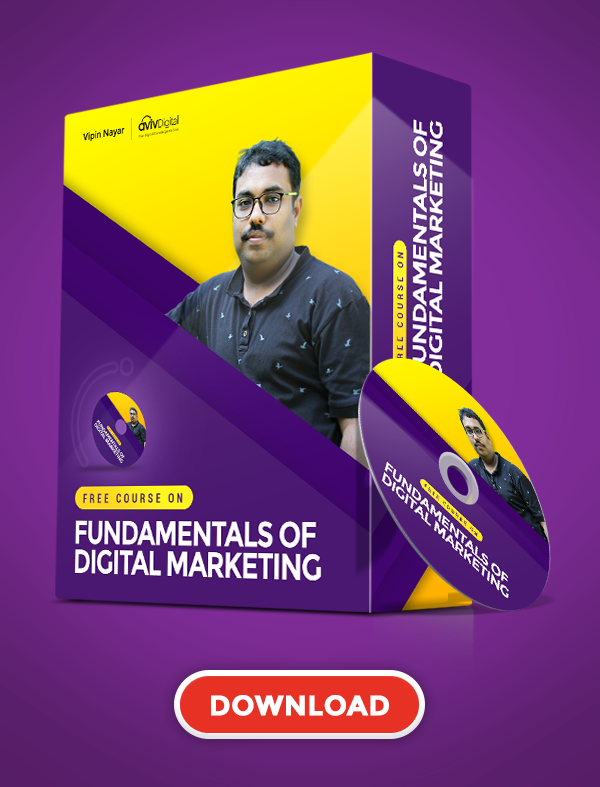
Often, copywriting is understood as a component of content writing. This may be situations where content writers have to take on the role of copywriters and write thought-provoking scripts for companies. It is also noted that there are differences between their writing roles, and they are segregated because of the variation of content both roles are assigned. To make these differences more clear, let’s find what makes copywriting and content writing different from each other in this article.
What is Content Writing & Copywriting?
As digital content, notably textual content, content writing and copywriting are two different writing job roles and can be defined as follows.
Content writing is a form of writing mainly aimed at informing the users about a particular topic that may be essential in daily life, spare time or even career growth. If we expand our idea of content writing, we can define it as a writing style covering simple yet popular and significant topics of the major industries. Some of the popular areas where content writing is utilised are ecommerce, skin care, mental health, IT, real estate, tourism, etc.
Copywriting, on the other hand, is purely a role of writing focused on content with conversions in mind. You may have been familiar with concepts like CTAs, and click-through rates, which are some of the factors affecting conversion rates. As the arena becomes more data-centric, a copywriter has to brainstorm ideas that can satisfy the customer’s wants as well as what businesses offer. Copywriting also plays a significant role in industries similar to content writing.
Key Similarities of Content Writing & Copywriting
Before moving into stating the key differences between content writing and copywriting, let’s briefly discuss the similarities in the following table.
- With different goals, content writers and copywriters aim to target the audience by creating engaging content.
- The main aims of these writing roles are to increase a brand’s presence, drive traffic and convert visitors to customers.
- The creativity of the writers is met, satisfying the rand’s identity and messaging.
- Both need CTAs while they write the content to create an urge.
- Content is written based on the depth of its research, and storytelling is maintained throughout the content format.
Key Differences: Copywriting vs Content Writing
As content writing and copywriting differ in certain senses, let’s list them in this section.
| Points of Differences | Content Writing | Copywriting |
| Purpose | Informs users about a topic and gives out answers to a question. | Used for keeping readers engaged and taking action. |
| Main Goal | Promotes sales by educating on specific topics. | Promotes sales by writing copies aimed at conversion. |
| Appeal | Writers have to add reasoning to their points stated in the content. | Writers must create urgency, especially by infusing FOMO(Fear Of Missing Out) and CTA(Call-to-actions). |
| Focus over SEO | Content is written by using SEO, like adding keywords & readers’ search intent. | Less focus on SEO, as the only action is to engage and encourage readers to take action. |
| Types of content | Articles, blog posts, newsletters, ebooks, podcasts, etc. | Web page content, email campaigns, video scripts, ads, etc. |
Let’s explain in detail about the differences we have listed in the table above.
- Purpose of writing content
As the type of content written by copywriters and content writers varies, the matter entirely depends on the purpose of the content.
Copywriters have to write short-form content as they aim to create an urge among the audience and encourage them to take actions like filling out a form, subscribing to newsletters, etc. Thus, they are responsible for maintaining readability to attract quicker attention from readers. Copywriters also guide readers on where to take their next step on the web or in an ad visit.
Content writers have more to write on their plates, as content that is lengthy has to be a perfect example for reading and understanding the process and answering the basics of the particular topic. Thus, it takes an informing tone so that the audience can learn how the brands are interested in their audience to take action in future.
- Main Goals
Content writing and copywriting, despite having similar goals, are aimed at targeting and channelling the content for specific content.
For content writers, whatever is written is driven to provide knowledge that transforms the current period of any industry, and it goes on and on, resulting in a future yield. For copywriters, the space changes with the dynamism of words, gradually paving the way for increased sales.
In other words, when content writers are busy building an audience devoted to the product and industry for the long run, copywriters have to think outside the box to understand their audience and engage them in taking the actions needed currently.
- Emotional Appeal
Both writers have to be very precise in their ideas, and they have to connect to people’s emotions. As you know, marketing always considers customer psychology; emotions are too much of a factor in making content appealing.
Content writers are more likely to give reasoning to a fact. Thereby, they collide all facts to create content that promotes brand awareness and their expertise in the industry. The content also serves for the basic answers like what, why, how, where and everything the audience may want to know today or in the future.
Copywriters are assigned to create copies, for developing a sense of urgency with a desire to buy a product or service. Their current task involves diverting the attention of the audience from reading to completing an action as planned.
Thus, the audience’s emotions get in the middle of creating content with two diverse goals.
- Focus over SEO
To be frank, SEO relies more on content writers than copywriters. SEO strategies include creating content that meets audiences’ search intent, using keywords appropriately in the content, and ultimately ranking it in search engines. Content writers are the best choice for implementing these strategies.
Copywriting is less likely to cross paths with SEO as its role is to sustain creative ideas to convince the reader. It all depends on how SEO might require its use. There’s a role called SEO copywriting, which particularly involves creating web page content and copies.
- Types of content
Copywriting and content writing need different content tones, and some of the popular types of content these writers write can be arranged as follows:-
| Content Writing For:- | Copywriting For:- |
| Blog posts, articles, ebooks, press releases, newsletters, case studies, reviews, podcasts. | Web page content, ad and video scripts, email campaigns, CTAs, chatbot scripts. |
Copywriting vs Content Writing: Salaries In India
Are you guessing how much a content writer and copywriter earns in India? We will answer that.
Content writers in India, approximately earn around ₹18,ooo- ₹30,000 per month (Glassdoor).
Copywriters in India earnings are estimated at around ₹1.8 Lakh – ₹10 Lakhs per year(AmbitionBox).
Which Is Better For Your Business: Copywriting or Content Writing?
As both serve different purposes, businesses can think of a while to choose which writing can perfectly fit their needs.
Content writing is especially chosen when businesses have an eye on achieving a certain goal in the long run and get it decided now. Content writers can lure into educating the audience through their content. Because they write long-form content, businesses should expect that such content reflects the expertise in their respective fields.
Copywriting can be best for businesses that want people to understand the product and take action. However, businesses can only reach their goal in the short run if the copywriter nudges the people wholeheartedly. As short-run activities thrive for these businesses, you can take advantage of copywriting.
The Skills Behind Content Writing vs Copywriting
Content Writer
- A content writer should have a strong command over grammar, punctuation, spelling, and syntax.
- Should be able to express clearly and concisely.
- Should have an excellent understanding and utilising storytelling.
- He/she has to research and analyse different content and keywords.
- Require technical skills/ knowledge of SEO fundamentals, WordPress and other, if any, as companies ask for.
Copywriter
- A copywriter should have experience in persuasive writing.
- Write content in a short form and make it impactful.
- Have a strong knowledge of CTAs and their emotional appeal to the audience.
- Should have a creative mindset over creating compelling copies.
- Should be familiar with working in marketing automation tools that use copywriting.
Conclusion
Content writing and copywriting are prominent job roles for those who feel writing could be their best option for jobs today. We have differentiated copywriting and content writing in this article; you can find what needs to become one among them in this article.
Aviv Digital is one of the leading Digital marketing course in Calicut. We also offer Digital marketing course in Kochi. We offer a wide variety of globally recognized certification programs, including SEO, SEM, SMM, Email Marketing and Inbound Marketing courses. For more details, Contact us at: +91 8156998844
FAQs
What is the main difference between copywriting and content writing?
Copywriting is a means of writing persuasive copies that should generate revenue as expected. On the other hand, content writing is done to educate and engage the reader, making them believe a certain page does have the potential to keep up with trends.
Can one do both copywriting and content writing?
A confident writer with practically earned skills can do with both. You have to persuade and also educate the audience together.
Which one is more challenging?
Both writing styles have their challenges. While content writing needs storytelling to produce results, copywriting needs brainstormed ideas to make an excellent copy.
Which one can earn more?
Both writers earn higher salaries, which is clearly subject to their experience and expertise.







